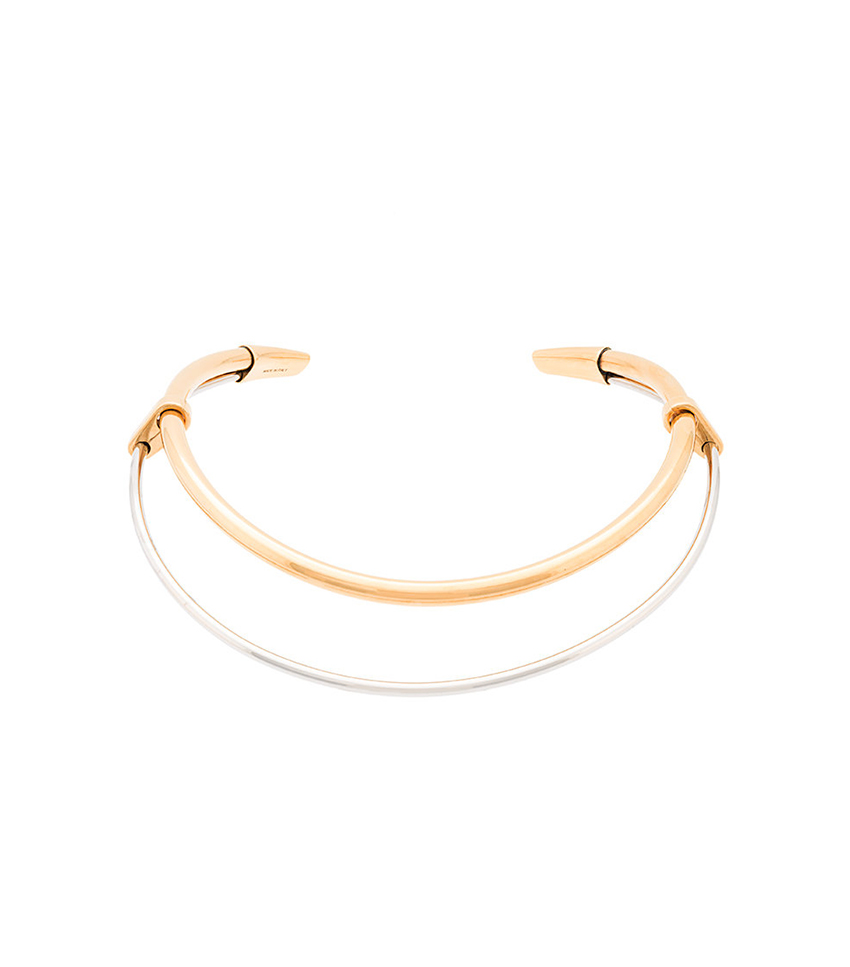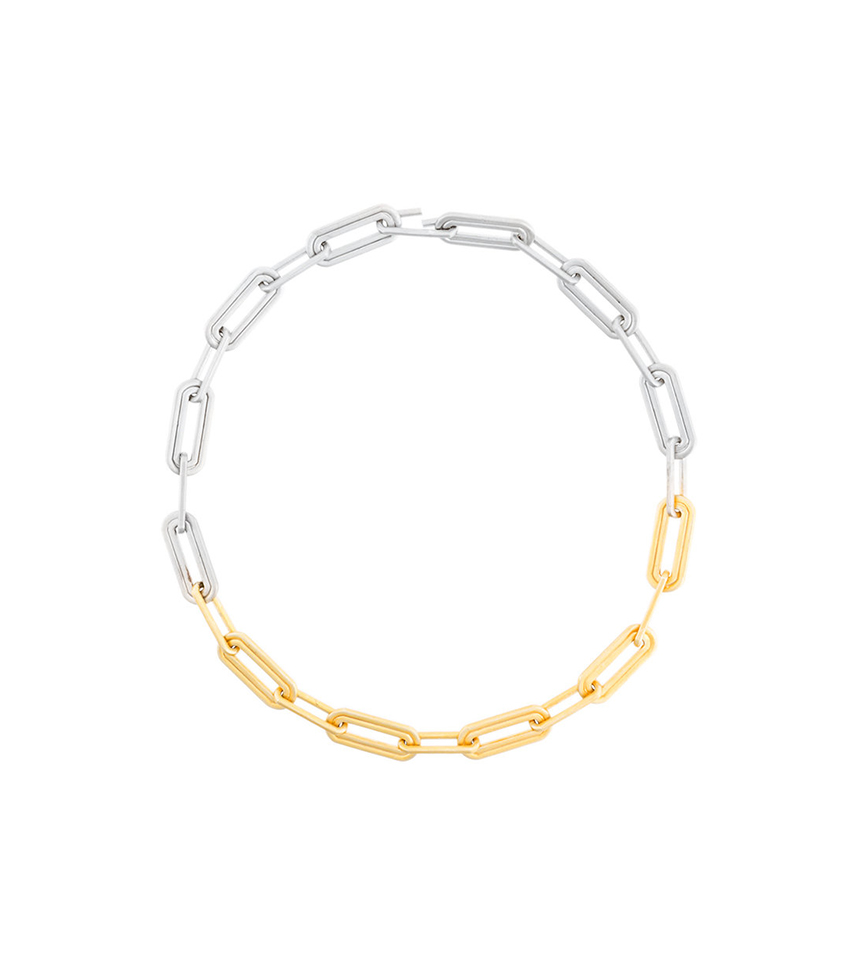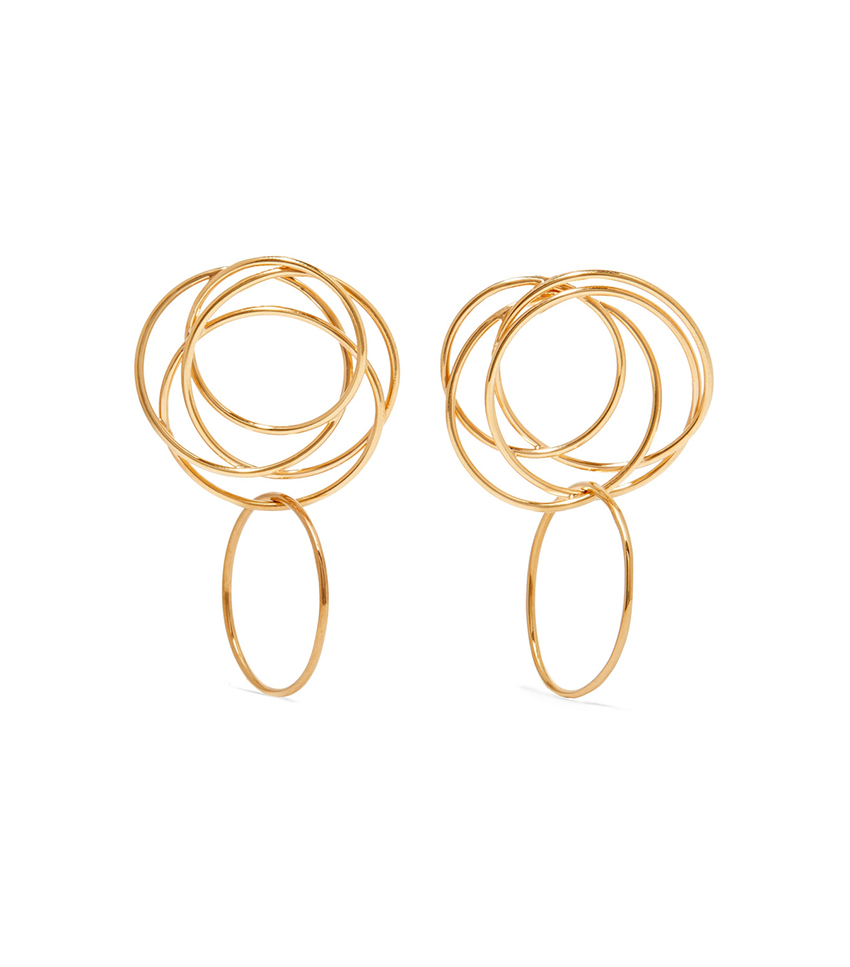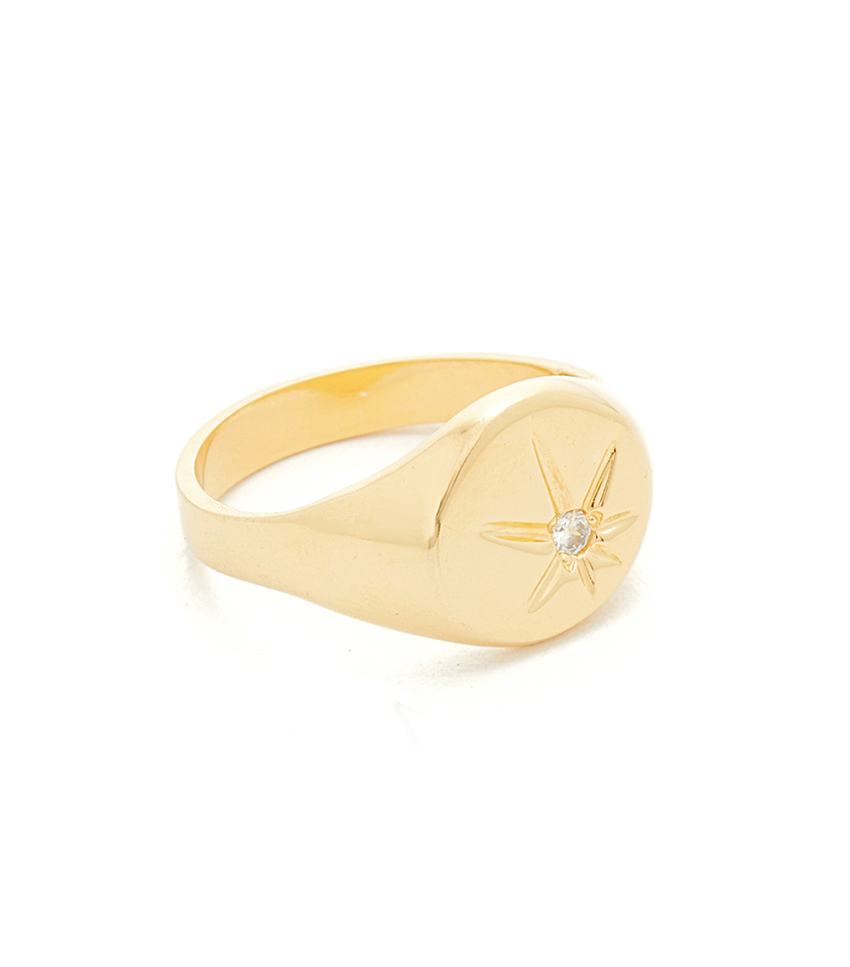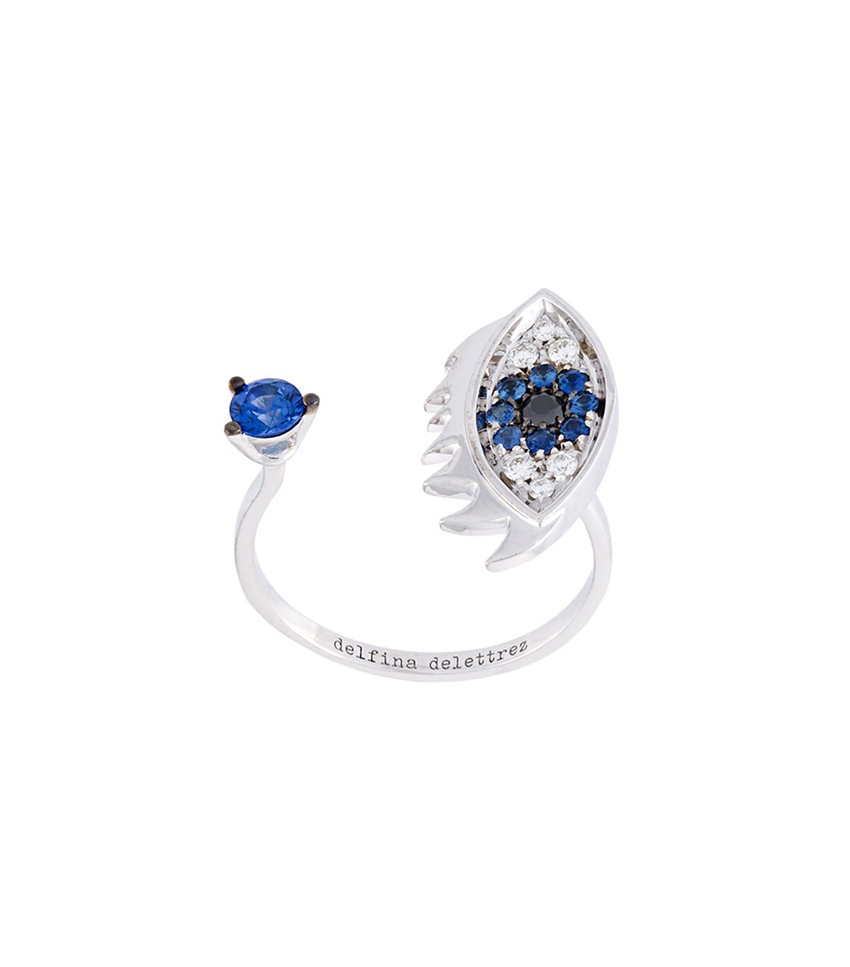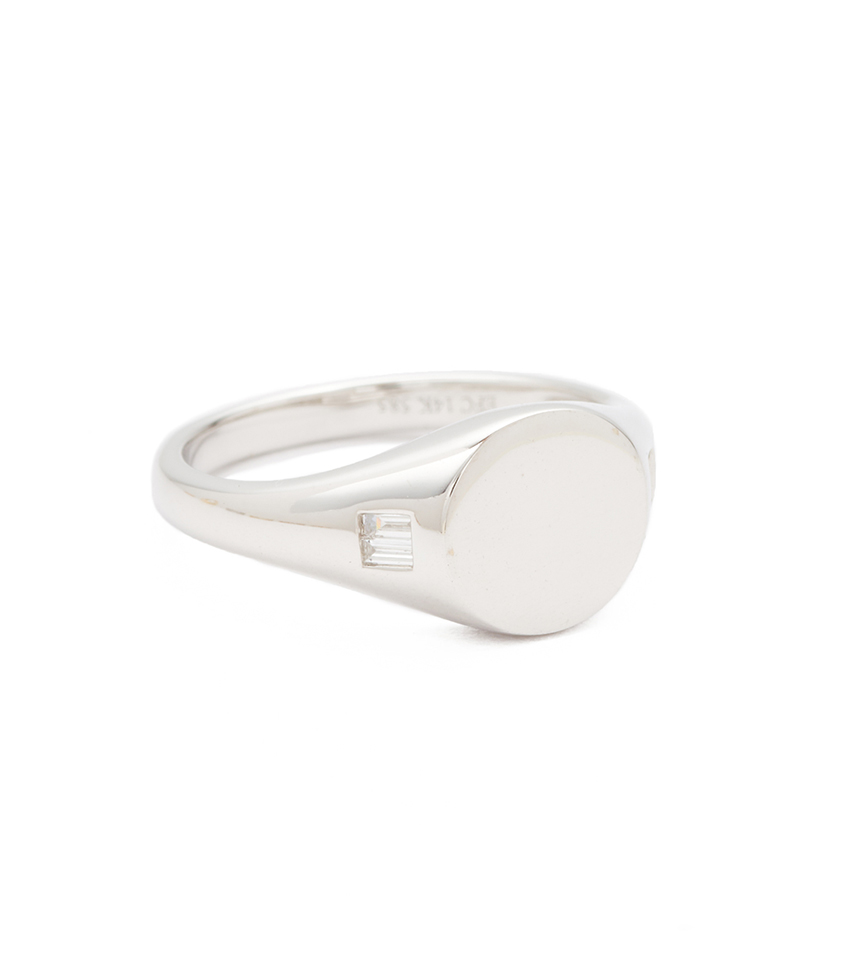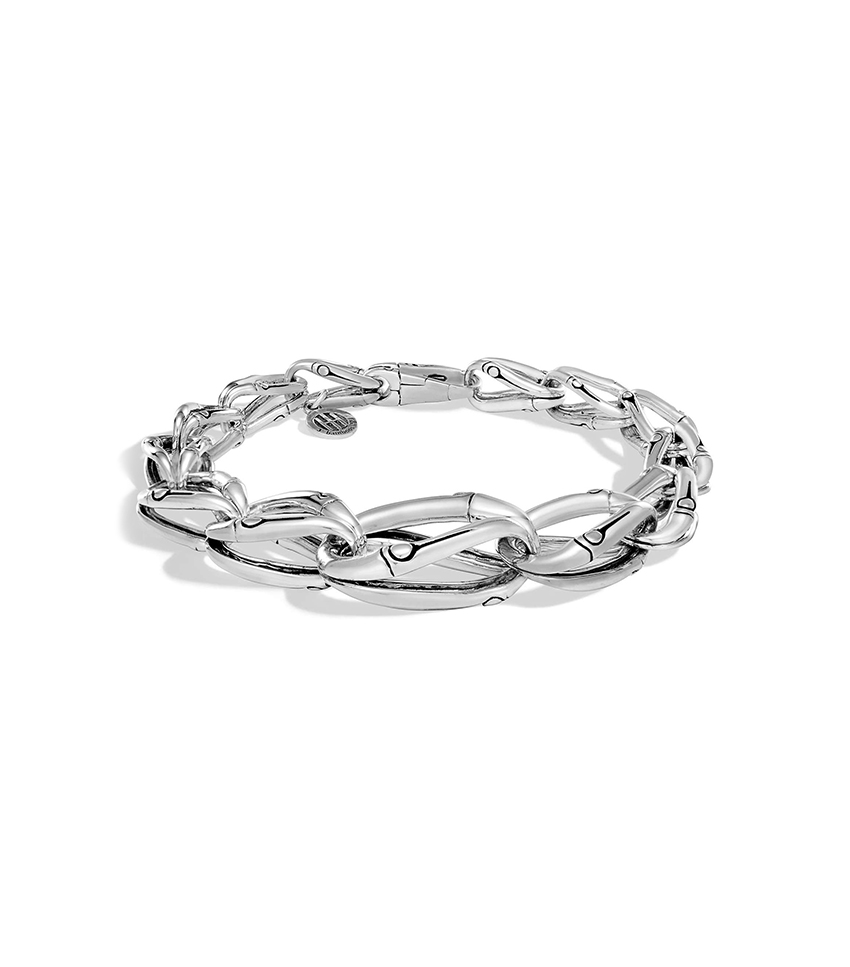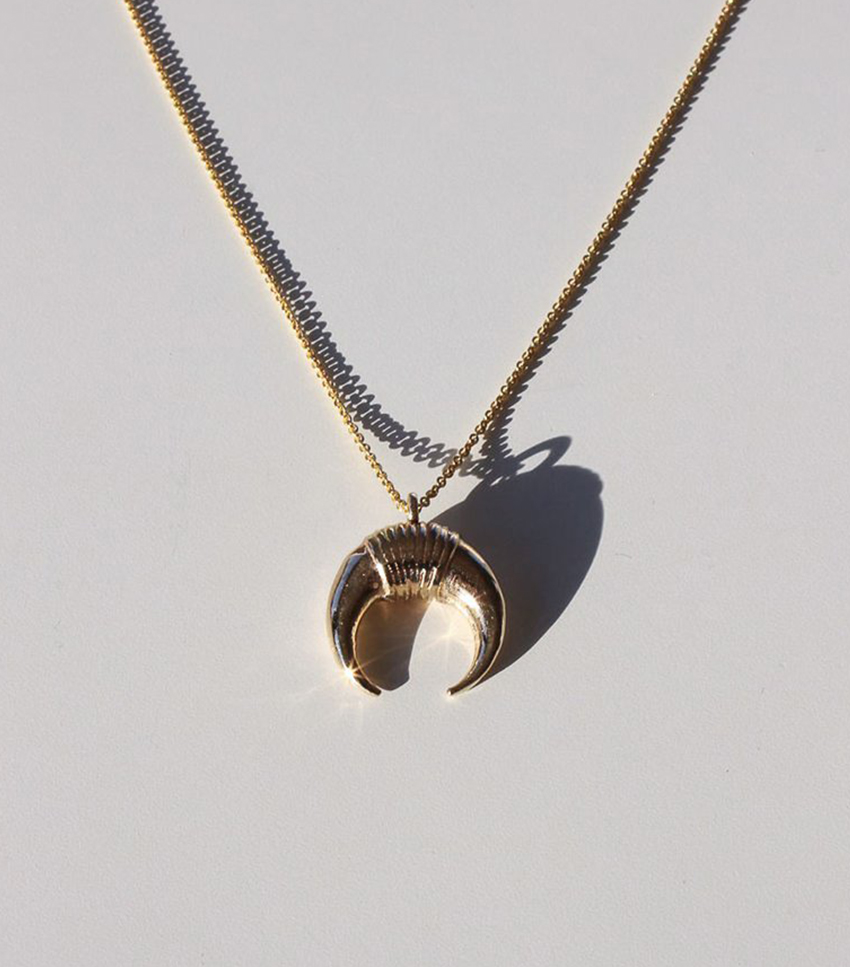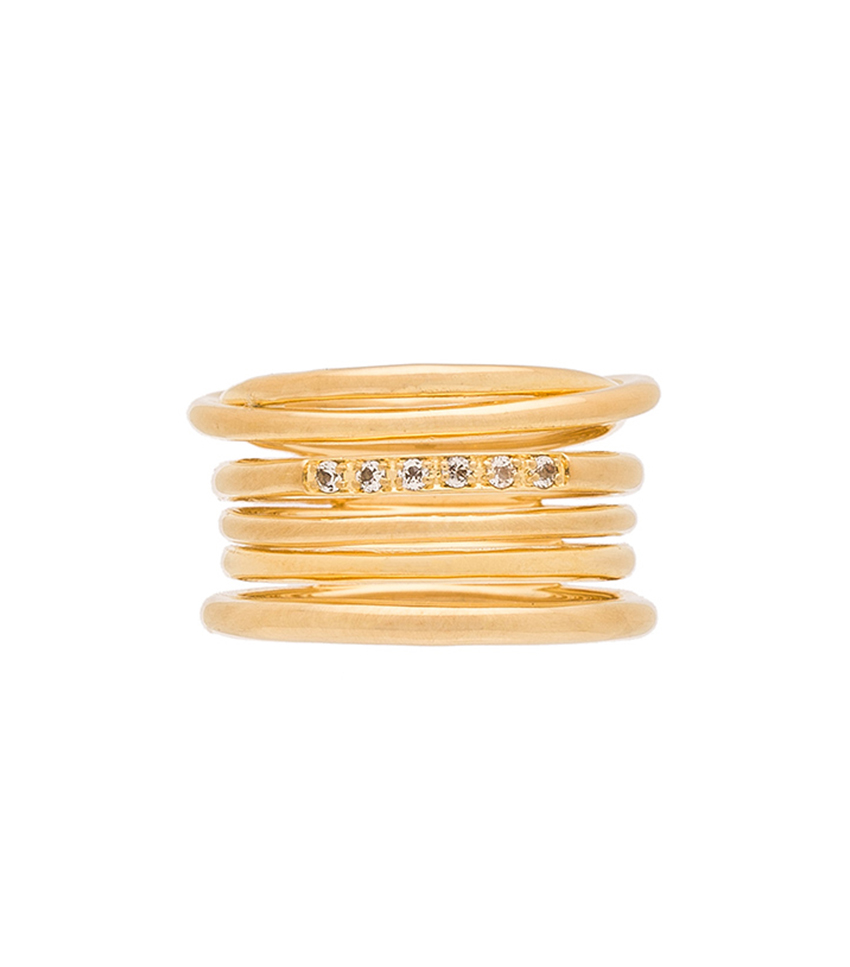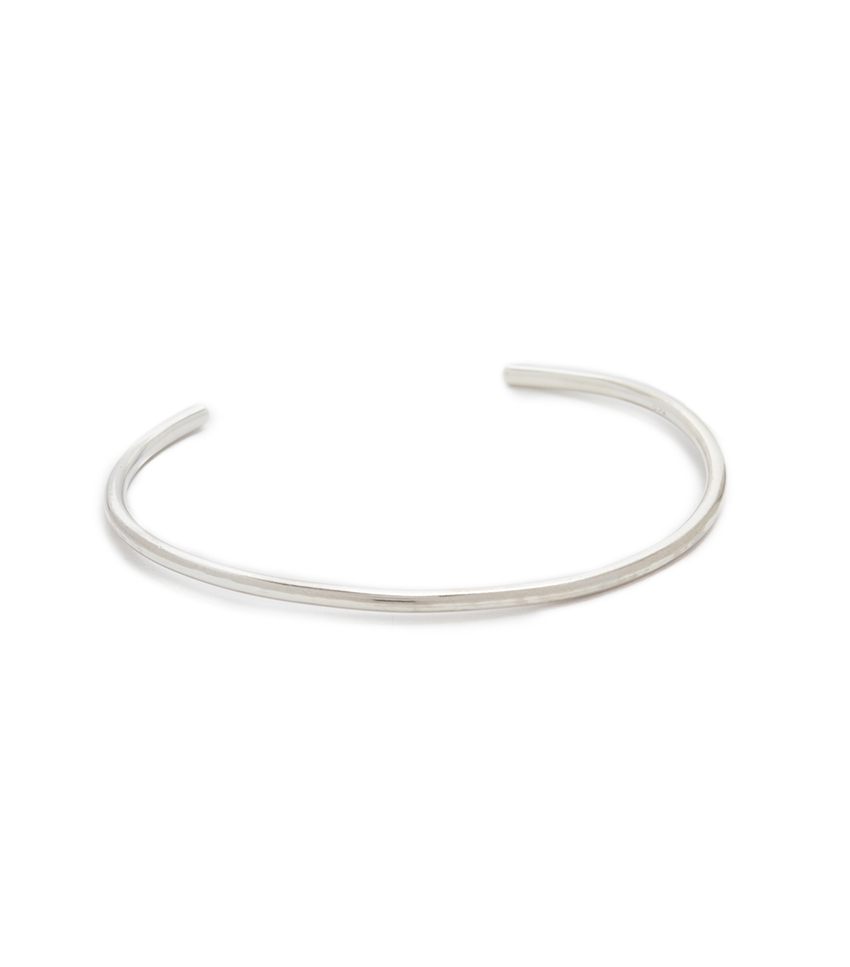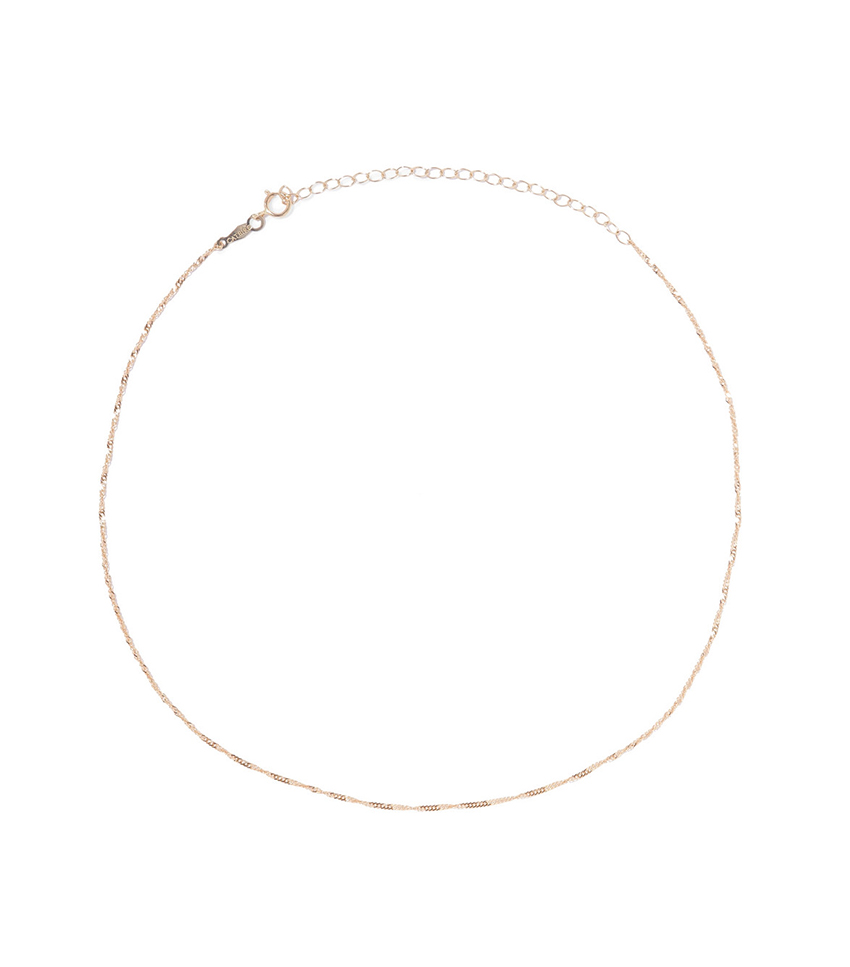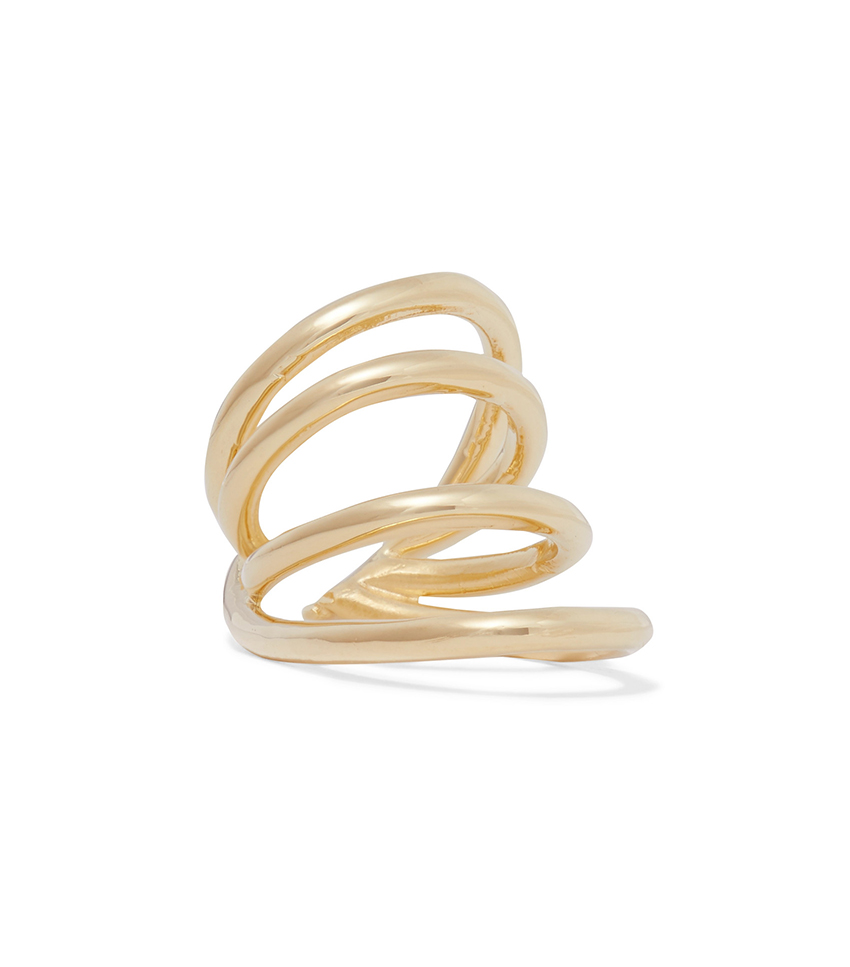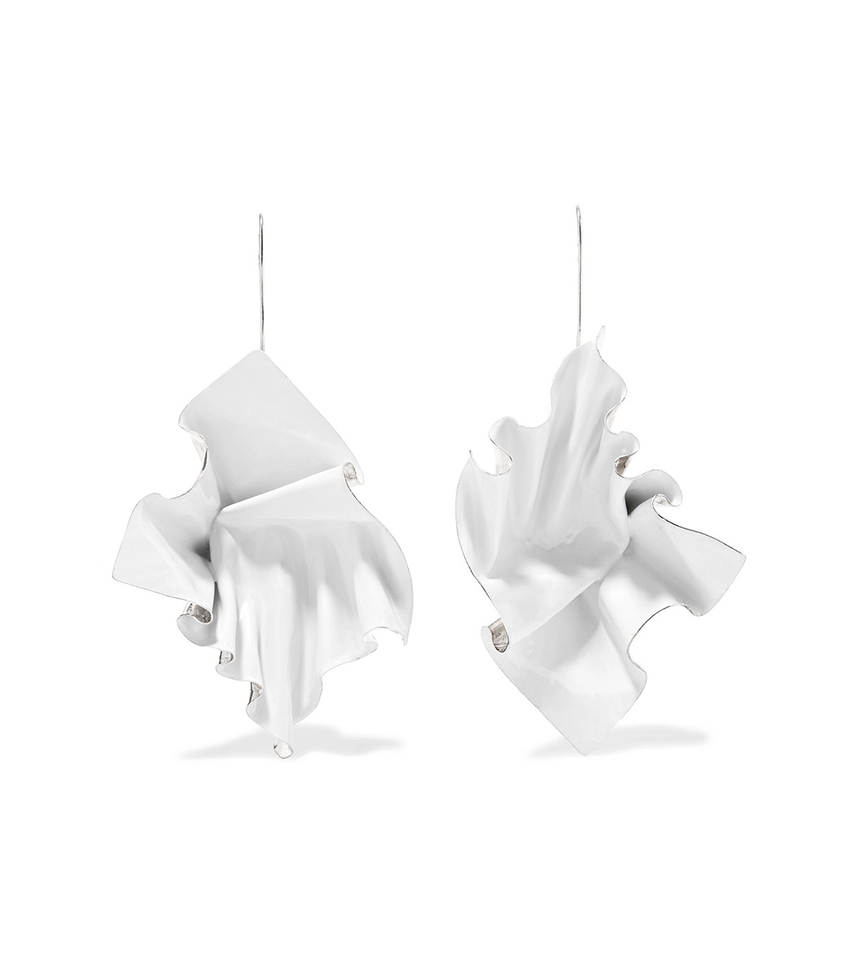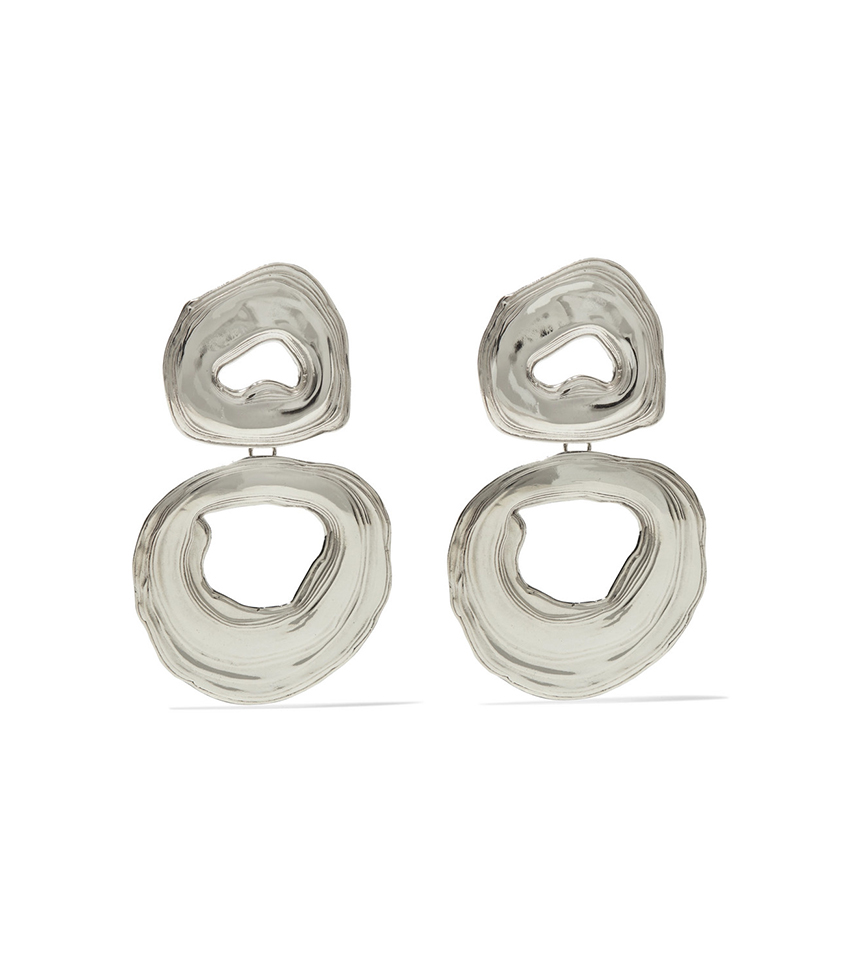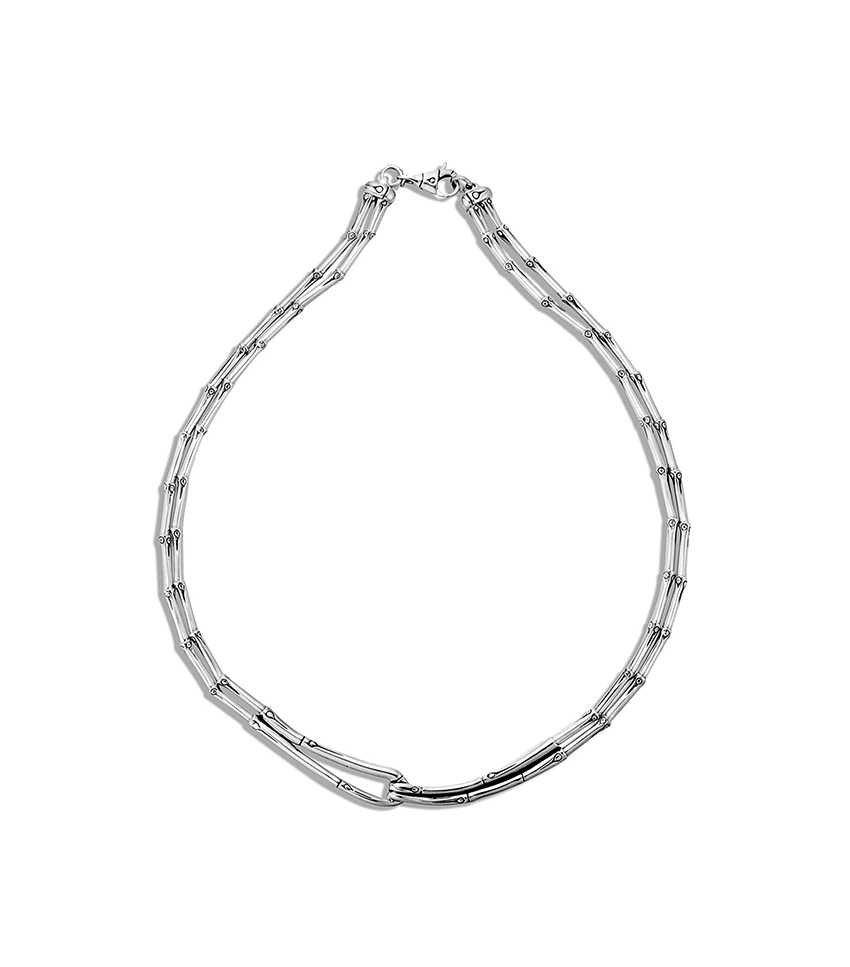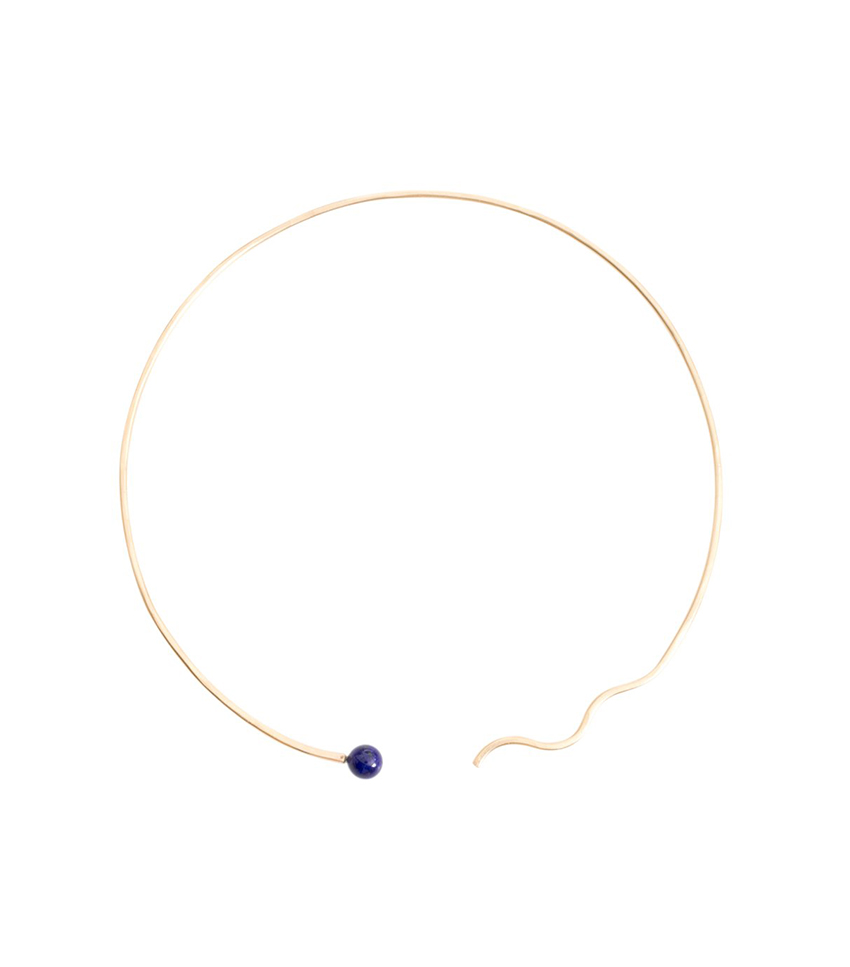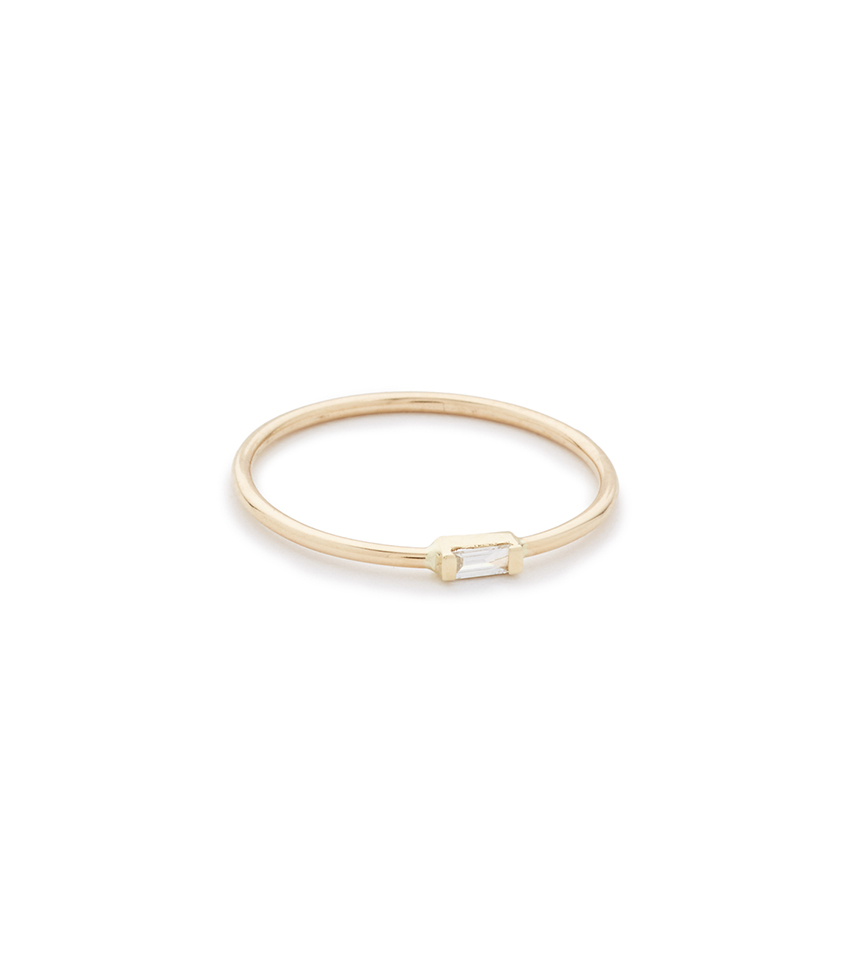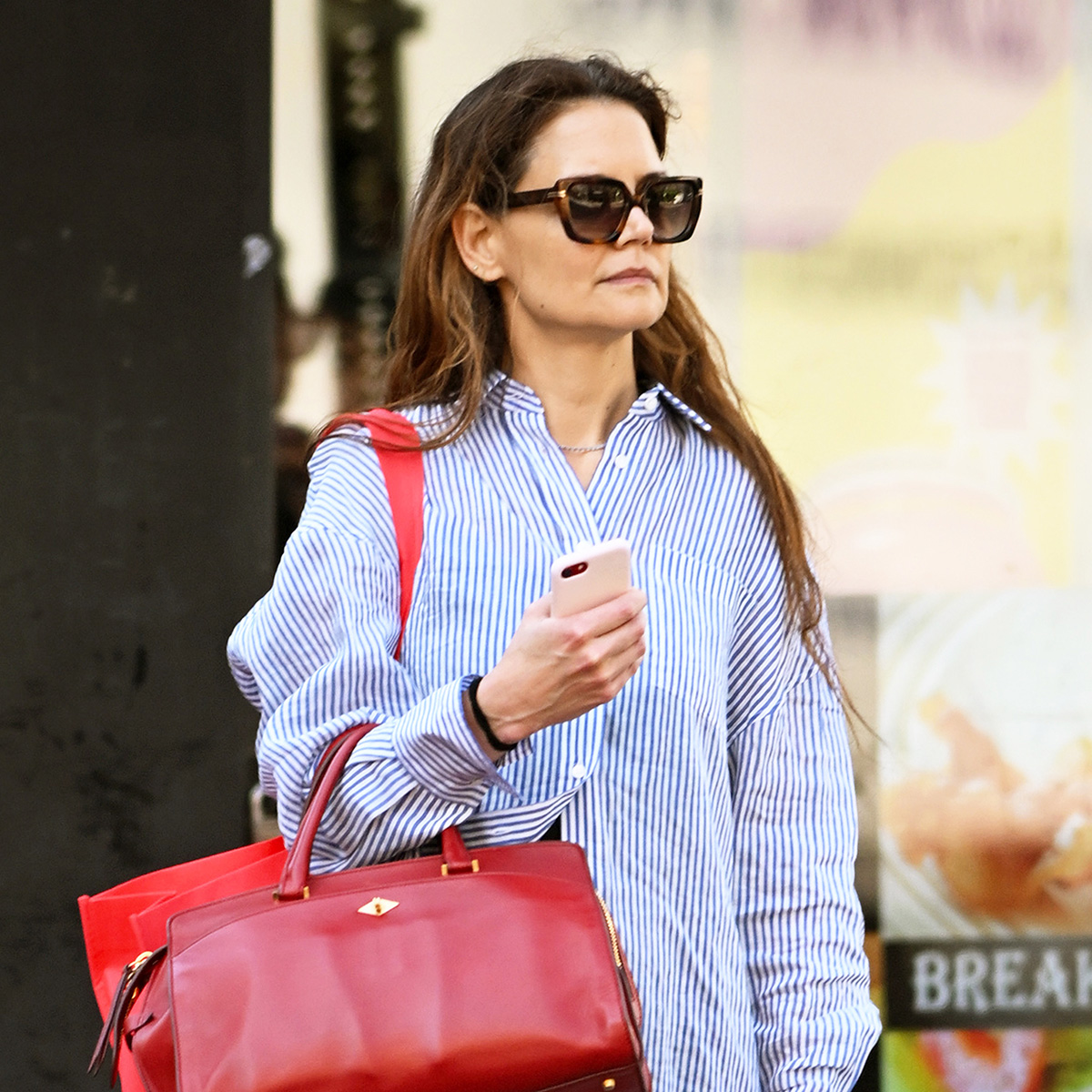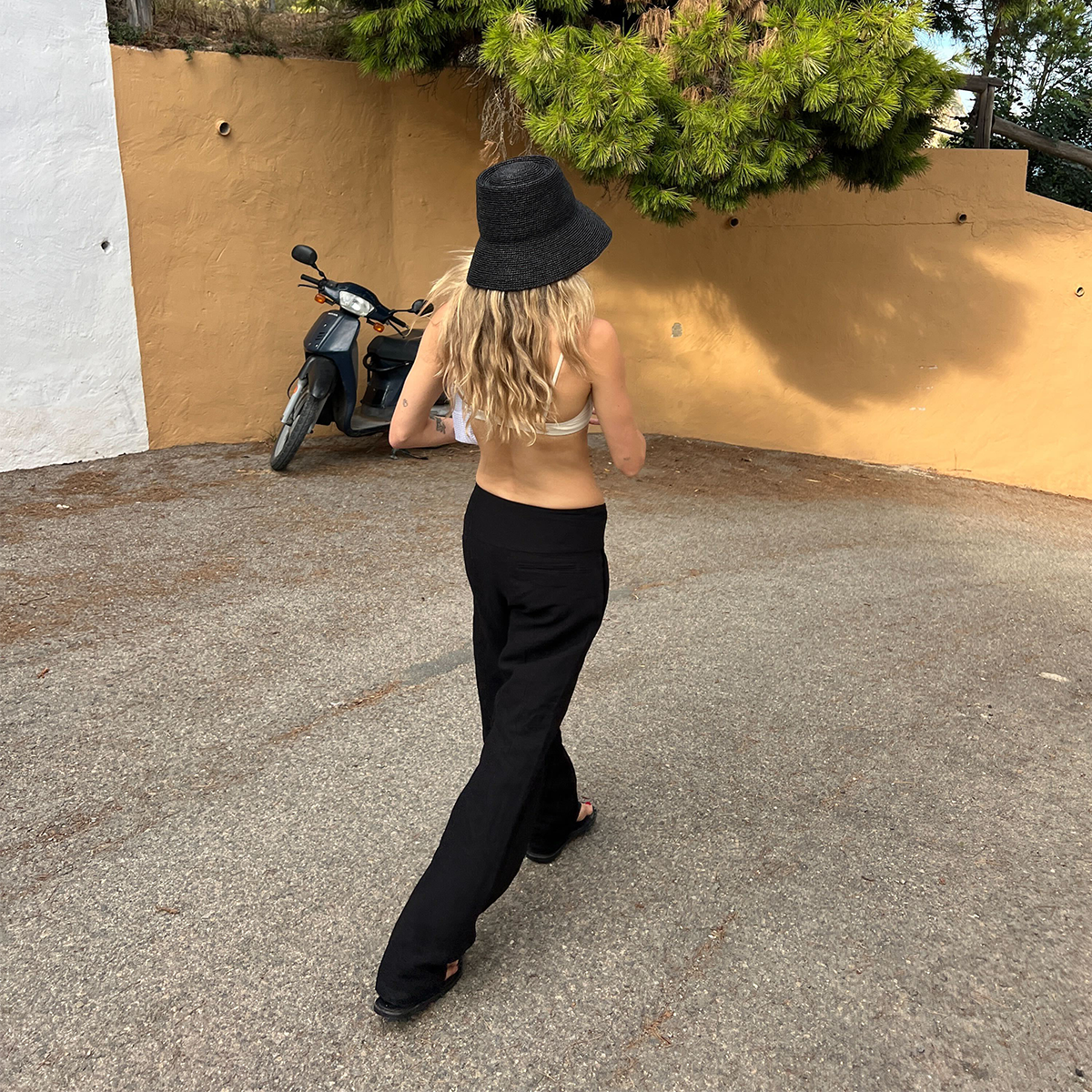How Well Do You Know Your Jewelry Metals? An Expert Breaks It Down
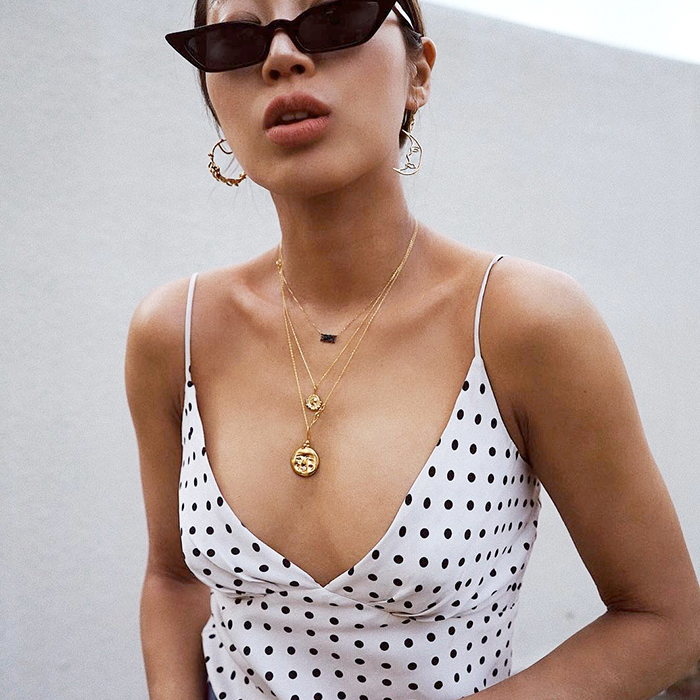
We adorn ourselves daily with loads of jewelry (if you're a maximalist) and stacks of daintier pieces (looking at you, minimalists), yet how often do we stop to consider the quality and value of the metals we constantly wear? In an ideal world, we'd all wear the highest quality materials across our rings, necklaces, earrings and more. But let's be real: we so often fall in love with the design of a more affordable piece and wear it without questioning what it's really made of.
To dig a bit deeper, we're looking at the real difference between jewelry metals as well as the value, history, and lifespan that goes along with them. We tapped a jewelry design expert behind the Bali-based label John Hardy for some key insights on the matter. Whether you've been an all-gold-everything type for years or you love mixing metals and experimenting when it comes to jewelry, we bet you'll learn a thing or two from Hollie about your own jewelry box staples.

What’s the main difference between the primary jewelry metals?
Each metal is extracted and mined from the earth like a stone. It is a phenomenon of nature, and like gems, each has its own character, strength, and fascination, reacting differently to other elements. The least reactive the metal, the harder it is, and it will have a longer life span. These rare and precious metals include platinum, palladium, gold, and silver and are associated with jewelry and art. Revered for their beauty and strength, the hardest metals demand the highest price.
Over thousands of years, we have learned how to work and manipulate metals for various uses, both industrial and creative. Forging, hammering, bending, melting, and weaving—all of these techniques are used in traditional handcrafted techniques as we use in John Hardy.
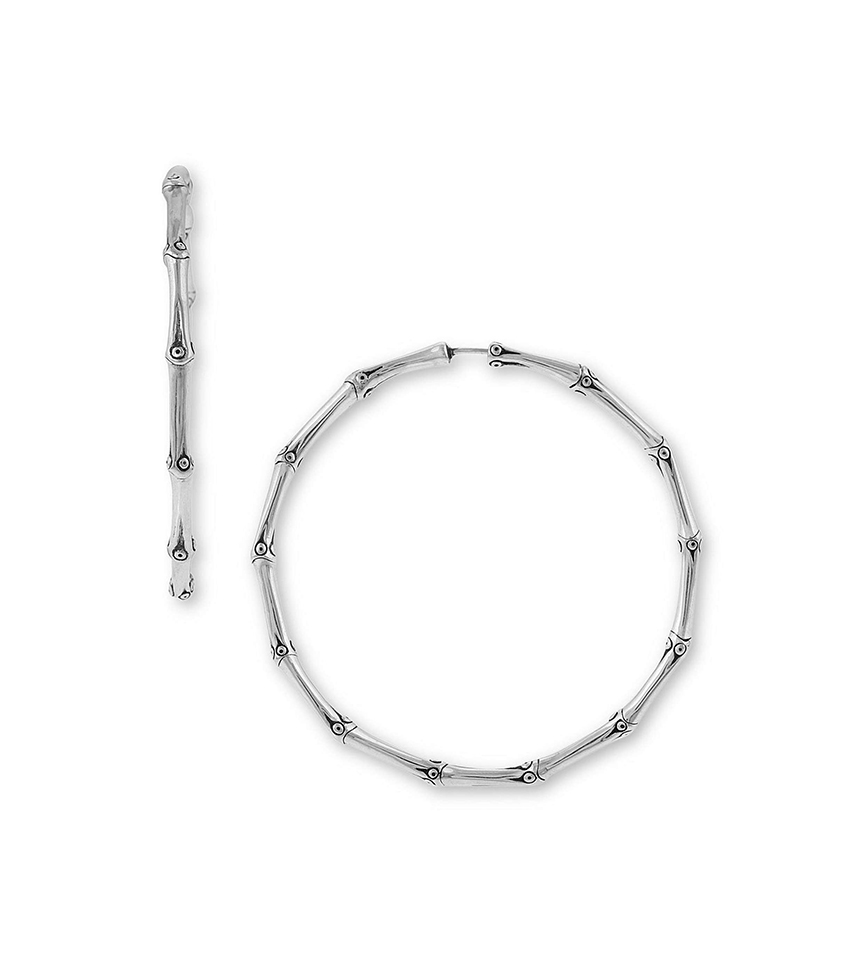
How do you think about each metal differently when designing?I love to use various metals to create power, drama, and contrast to amplify a design. The duality of our two-tone language in silver/gold, and silver/bronze has a spirit of “alchemy” to it, mixing metals and juxtaposing materials in a bold way. Since joining John Hardy, I definitely think about the metals a lot more in the way I design, but more so in the way they are treated: hammered, woven, or cast. John Hardy himself was continually experimenting with metal, pushing the boundaries of weaving silver, and this is intrinsic to our DNA. Silver is more affordable than gold, so I have fun creating maximalist pieces, drapes, and layers of silver.
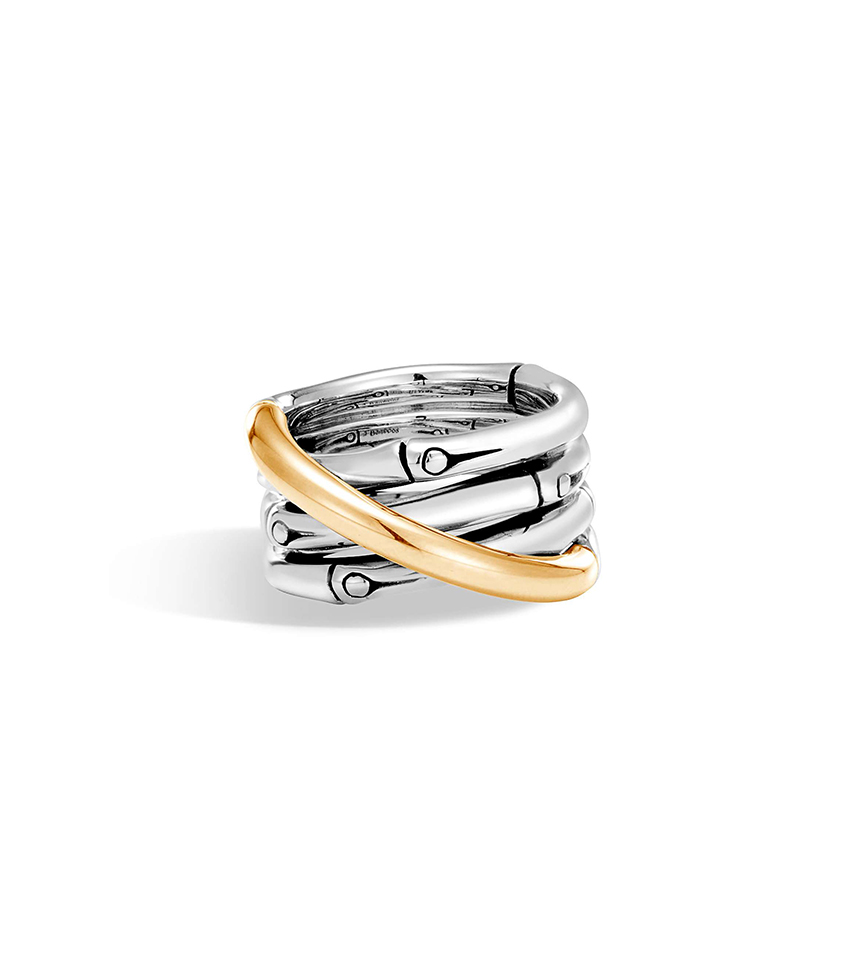
What should you consider when choosing the right jewelry metal for you?It truly is personal preference, though I recommend thinking about how you are going to wear the piece and when. Some people stick to one metal and only wear silver or gold. I personally like to mix and combine.A great option for those who are indecisive or switch up their metals frequently is combined metal or reversible jewelry. Take John Hardy’s Reversible Classic Chain bracelet for instance. It’s a timeless handwoven chain bracelet that is gold on one side and silver on the other. The reversible piece can be worn on either side and worn casually or stacked for a powerful statement. I love transformable jewelry and the duality of metals.
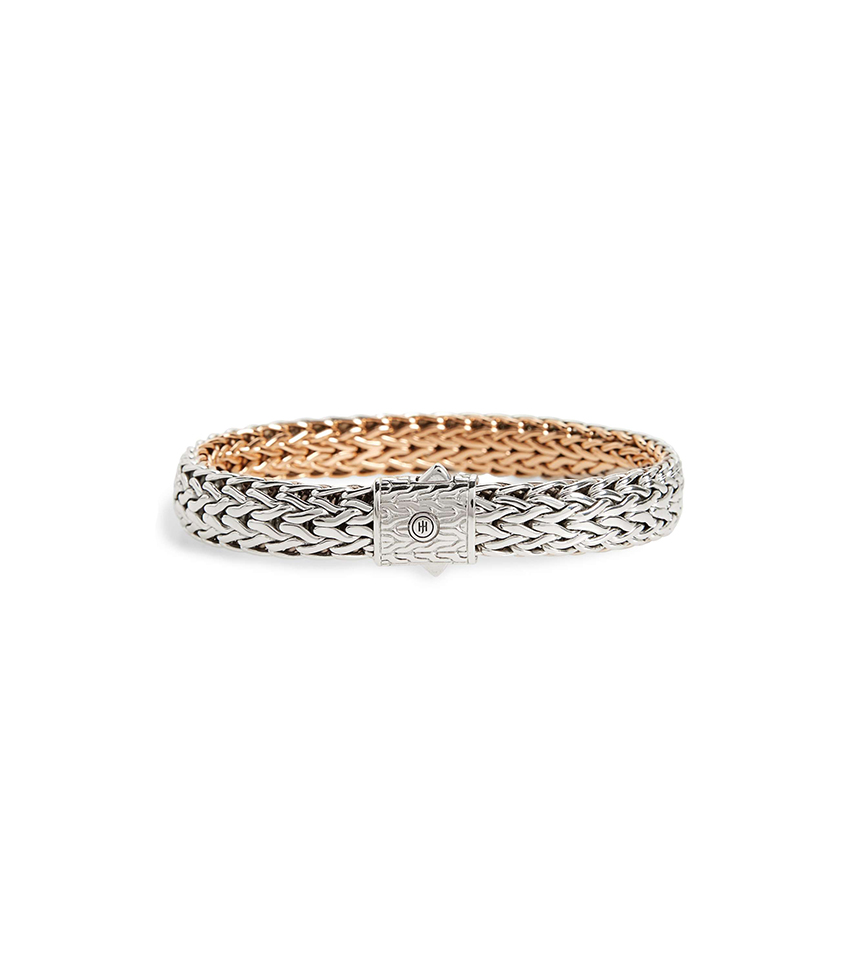
When is it appropriate to opt for alternative metals like stainless steel?Stainless steel is a great alternative for costume or more flash-trend jewelry. That said, there are some interesting contemporary designers who juxtapose these metals with gold or even diamonds in a very elevated way. Titanium, stainless steel, or base metals like copper are all used but are less traditionally associated with jewelry and have less of a precious appeal, thus less collectible than sterling silver or gold.
Shop more jewelry staples:
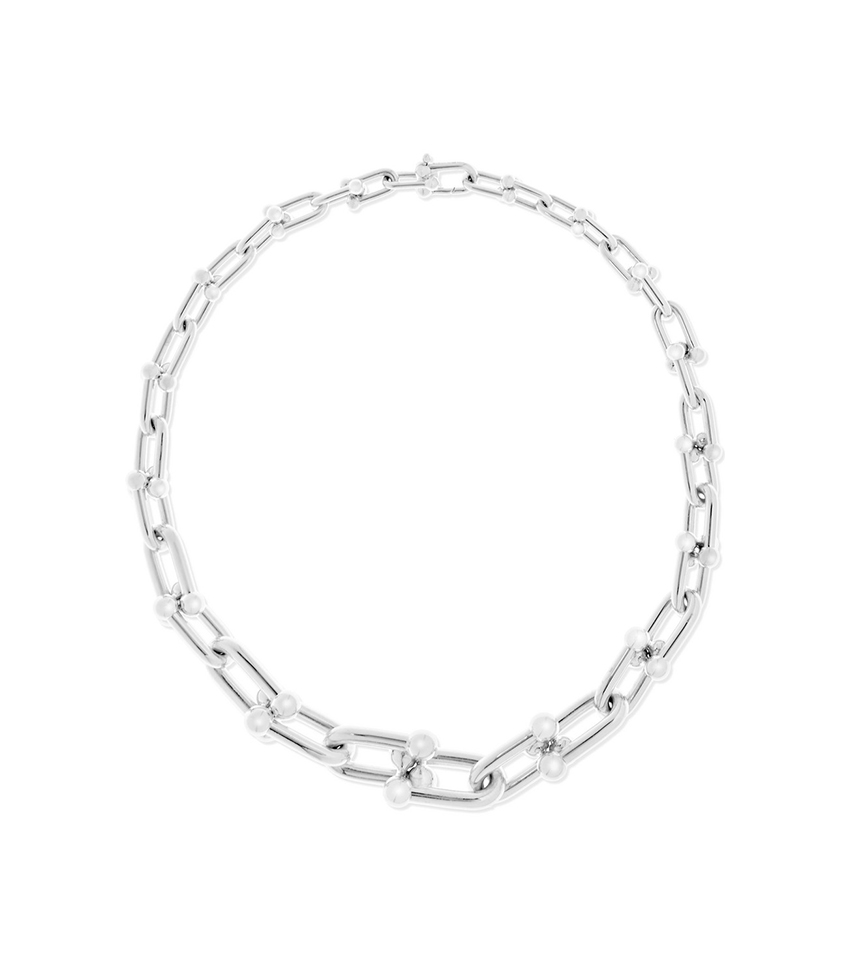
Anna is an NYC-based senior fashion editor who has been a member of the Who What Wear team for over seven years, having begun her career in L.A. at brands like Michael Kors and A.L.C. As an editor, she has earned a reputation for her coverage of breaking trends, emerging brands, luxury shopping curations, fashion features, and more. Anna has penned a number Who What Wear cover interviews, including Megan Fox, Julia Garner, and Lilly Collins. She also leads the site’s emerging travel vertical that highlights all things travel and lifestyle through a fashion-person lens.
-
 Jamie Mizrahi's World: The Celeb Stylist's Favorite Red Carpet Look, Most Worth-It Shoe, and Album She Listens to on Repeat
Jamie Mizrahi's World: The Celeb Stylist's Favorite Red Carpet Look, Most Worth-It Shoe, and Album She Listens to on RepeatA modern-day style expert.
By Allyson Payer
-
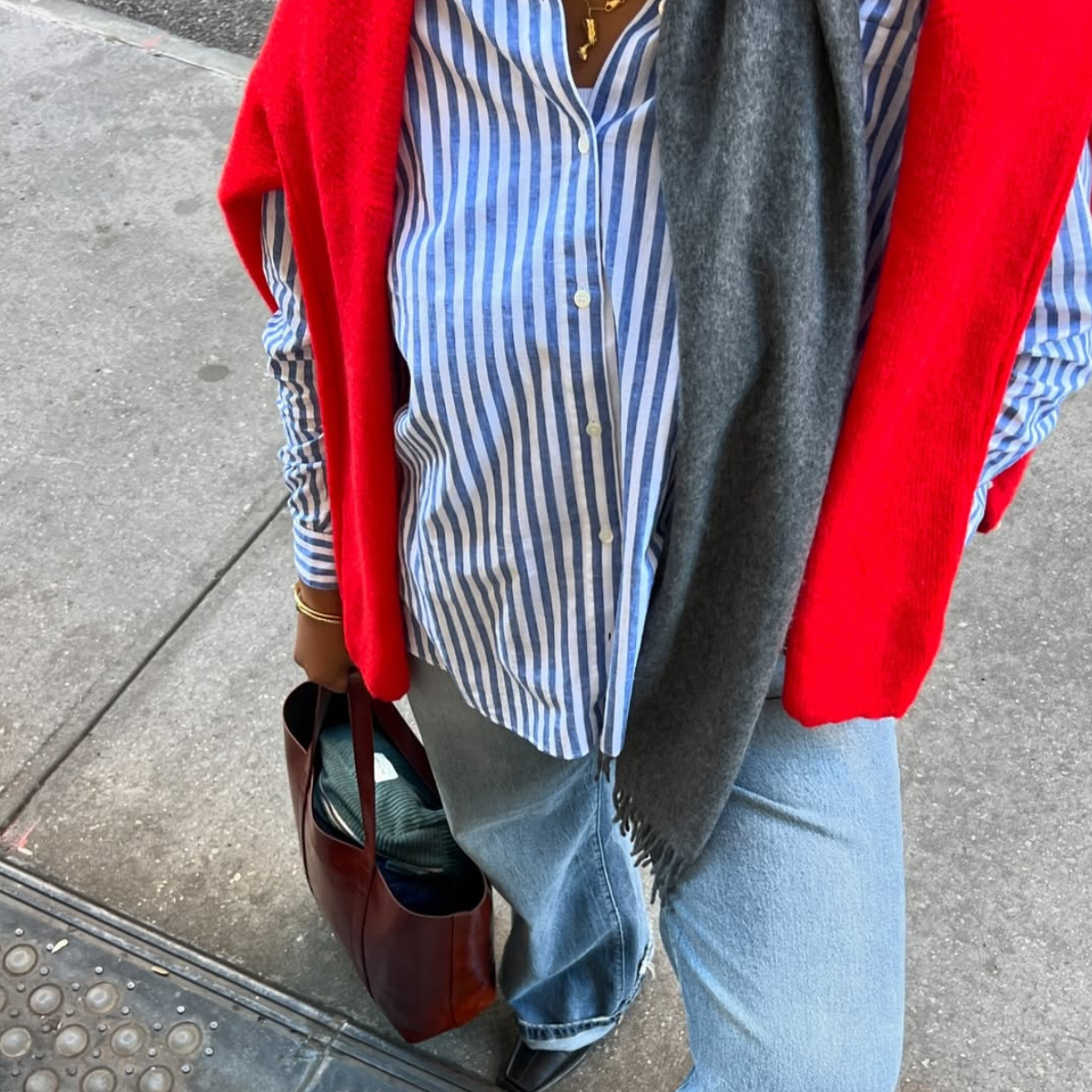 How Everyone Will Be Wearing Their Non–Skinny Jeans This Spring
How Everyone Will Be Wearing Their Non–Skinny Jeans This SpringHere's your outfit inspiration.
By Michelle Scanga
-
 Suddenly, Women With The Row Style Are Breaking This Fashion Rule
Suddenly, Women With The Row Style Are Breaking This Fashion RuleYou should too.
By Nikki Chwatt
-
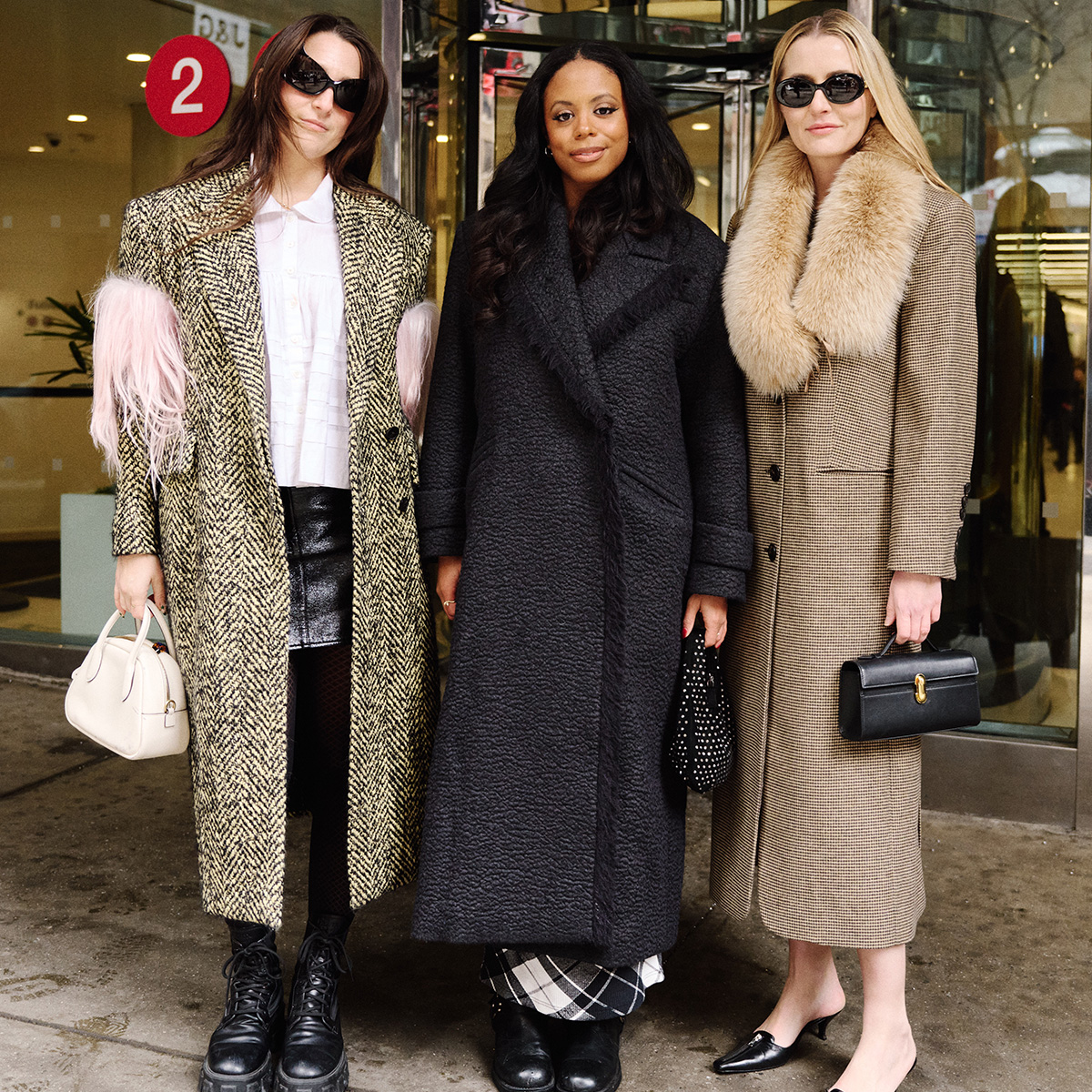 We're Fashion Editors—Everything We Saw, Wore, Did, and Ate During NYFW
We're Fashion Editors—Everything We Saw, Wore, Did, and Ate During NYFWLet's dive in.
By Anna LaPlaca
-
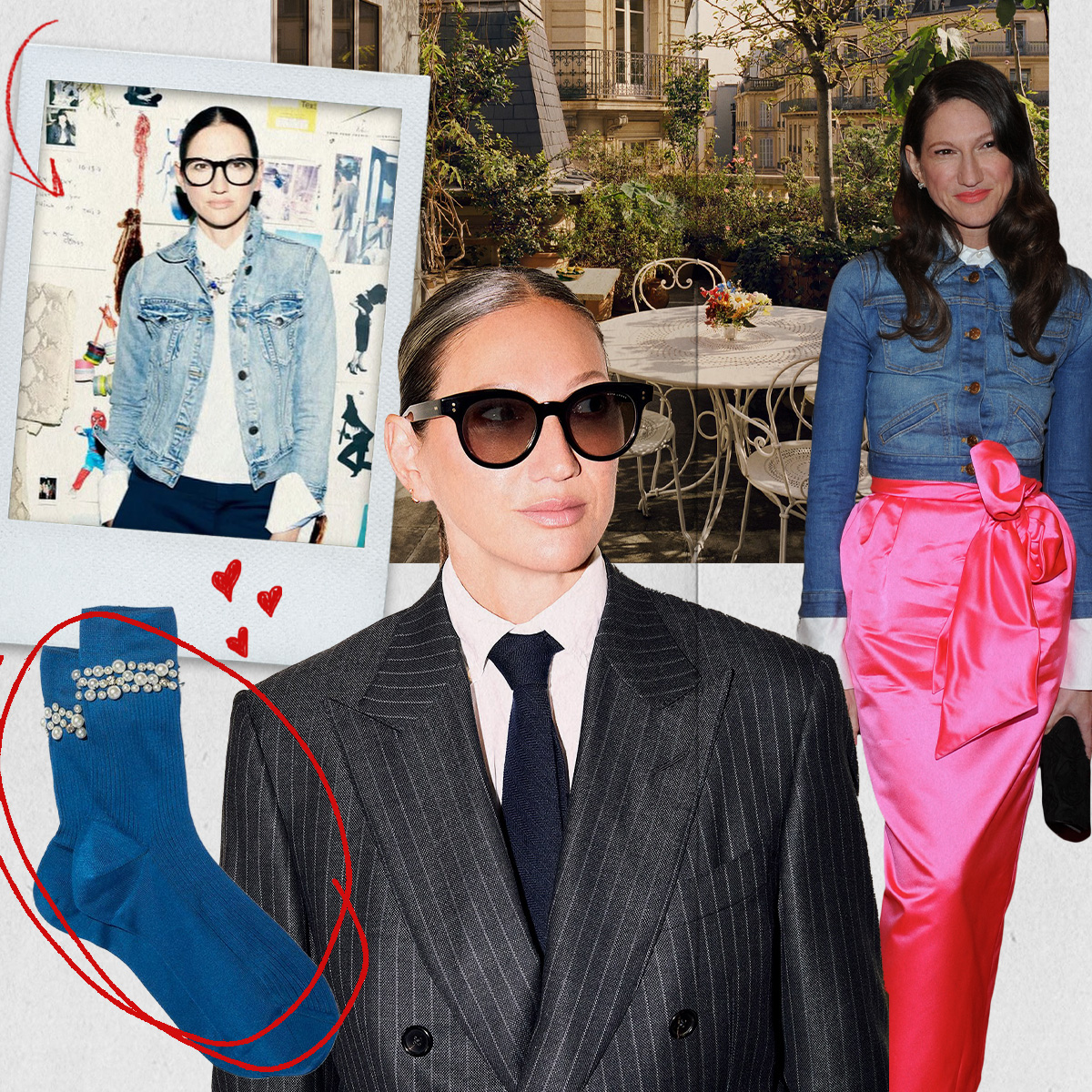 Jenna Lyons's World: Her Go-To Red Lipstick, Her Latest Eyewear Collab, and the J.Crew Pieces She Still Wears Today
Jenna Lyons's World: Her Go-To Red Lipstick, Her Latest Eyewear Collab, and the J.Crew Pieces She Still Wears TodayA true fashion icon.
By Judith Jones
-
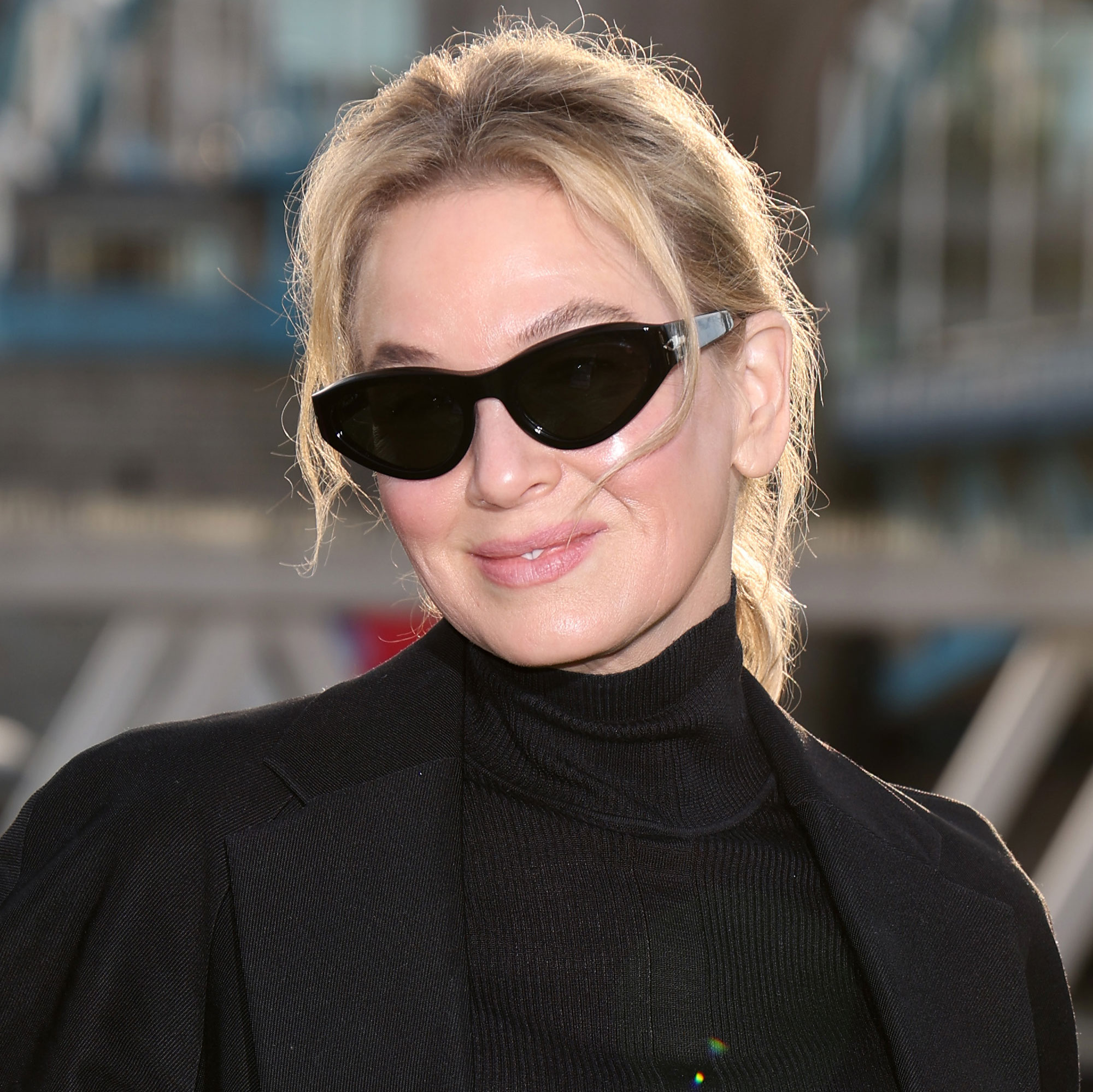 Not Into Trends? Renée Zellweger's Winter Outfit Combo Is 100% Classic
Not Into Trends? Renée Zellweger's Winter Outfit Combo Is 100% ClassicJust as you are.
By Drew Elovitz
-
 Emma Chamberlain's World: Her Warby Parker Collab, Two-Phone Rule, and Spiciest Fashion Takes
Emma Chamberlain's World: Her Warby Parker Collab, Two-Phone Rule, and Spiciest Fashion Takes"I just want to bring the most joy to people."
By Anna LaPlaca
-
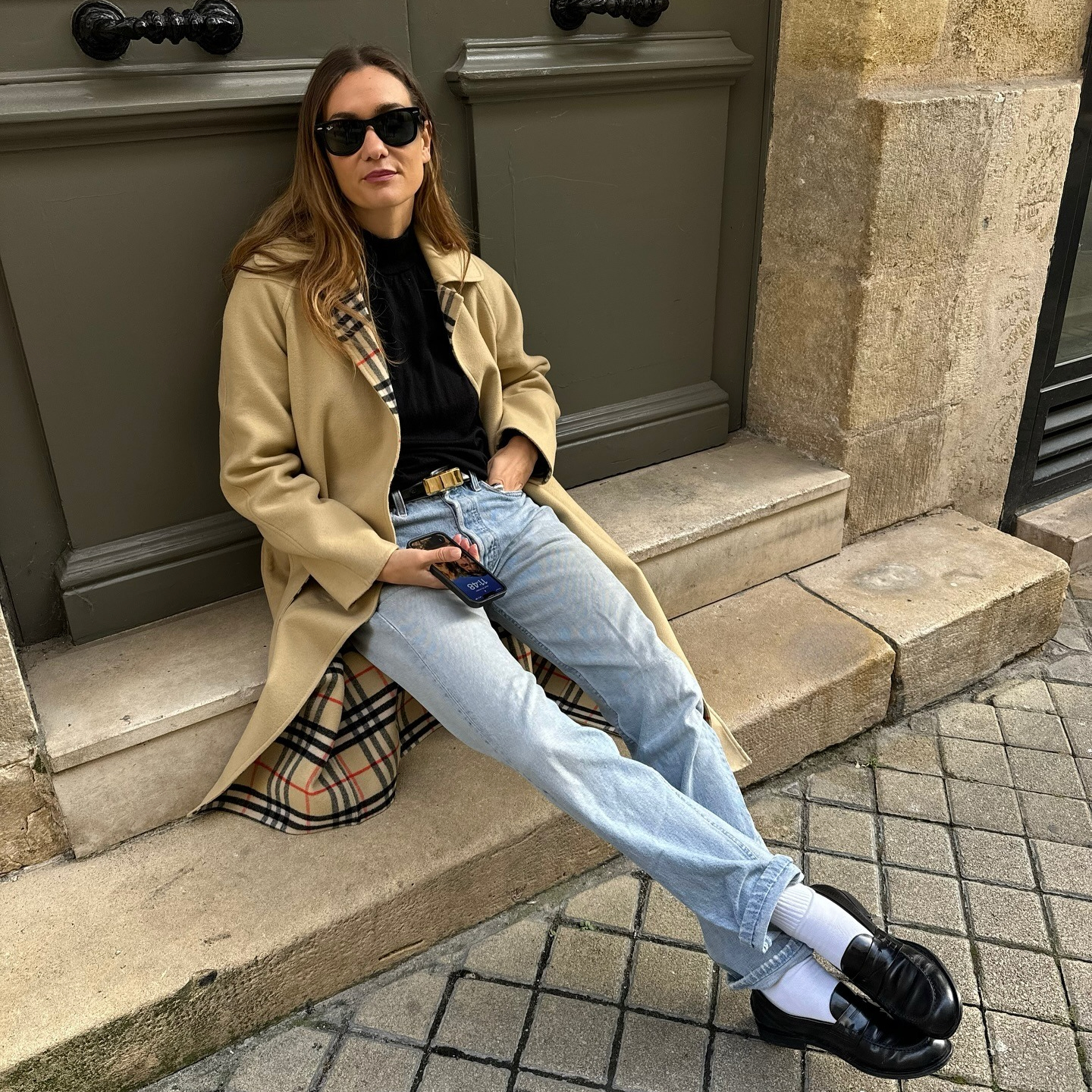 4 Anti-Trend Outfits I Spot Every Time I'm in Europe
4 Anti-Trend Outfits I Spot Every Time I'm in EuropeClassic looks that are always in style.
By Natalie Cantell
